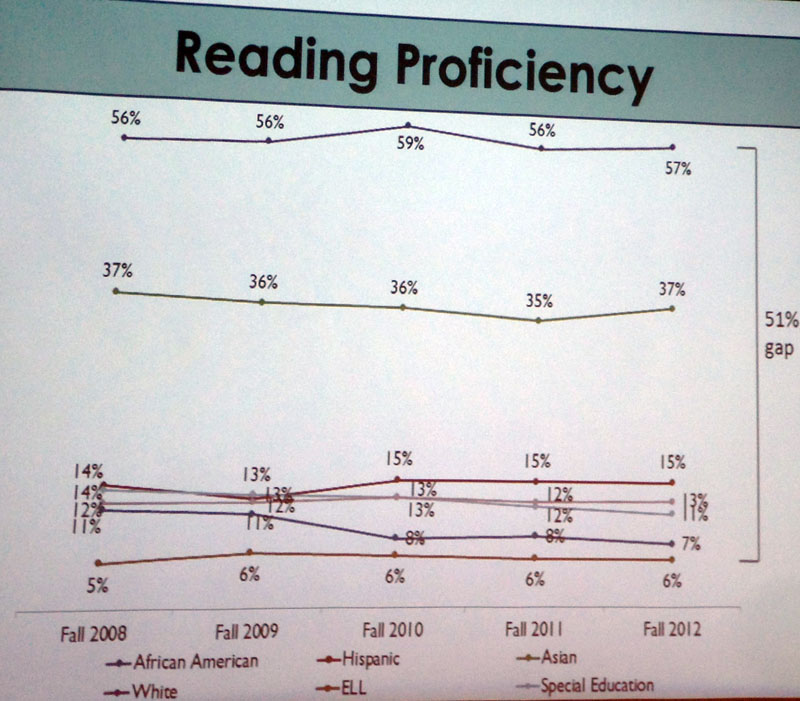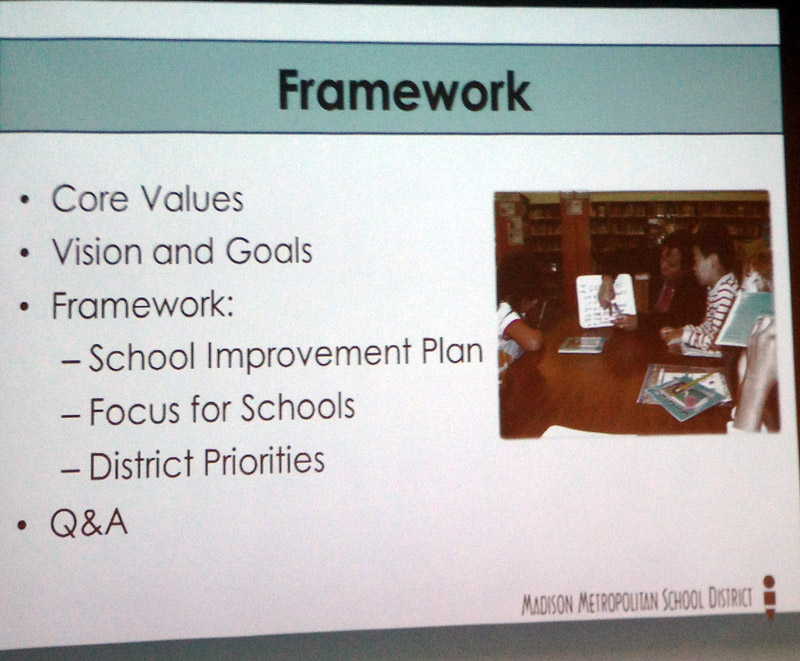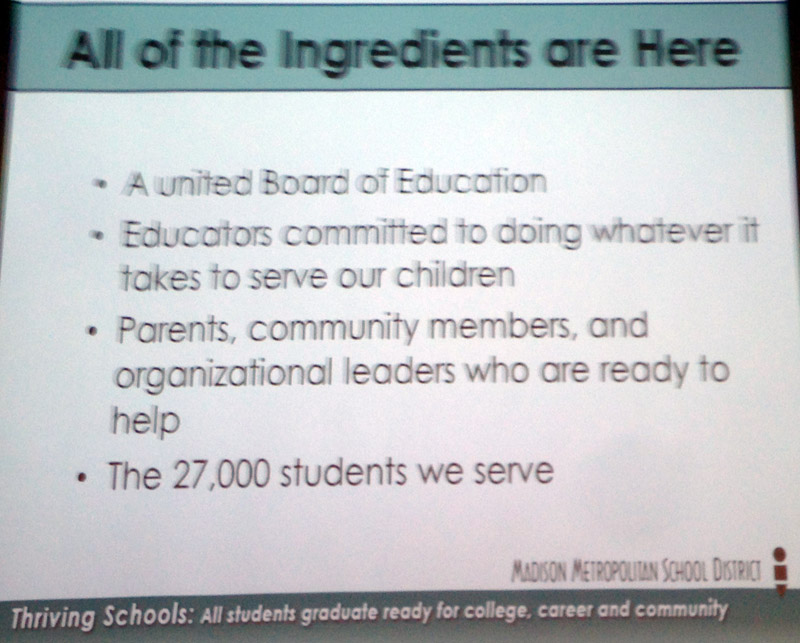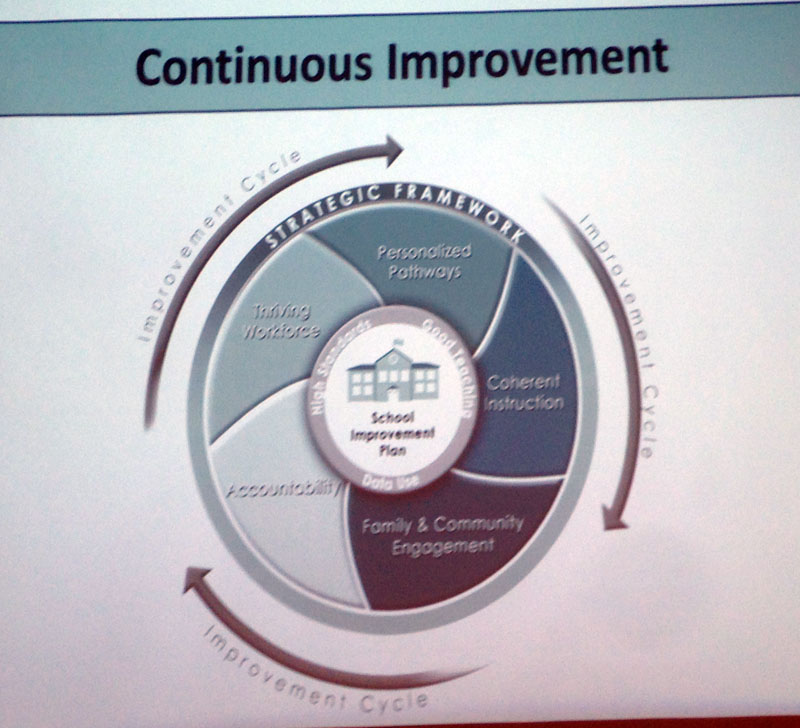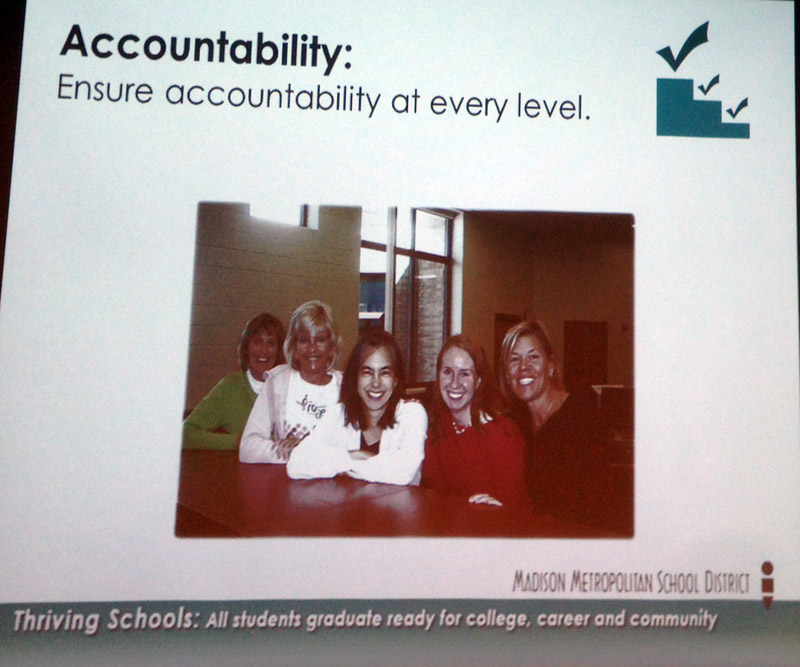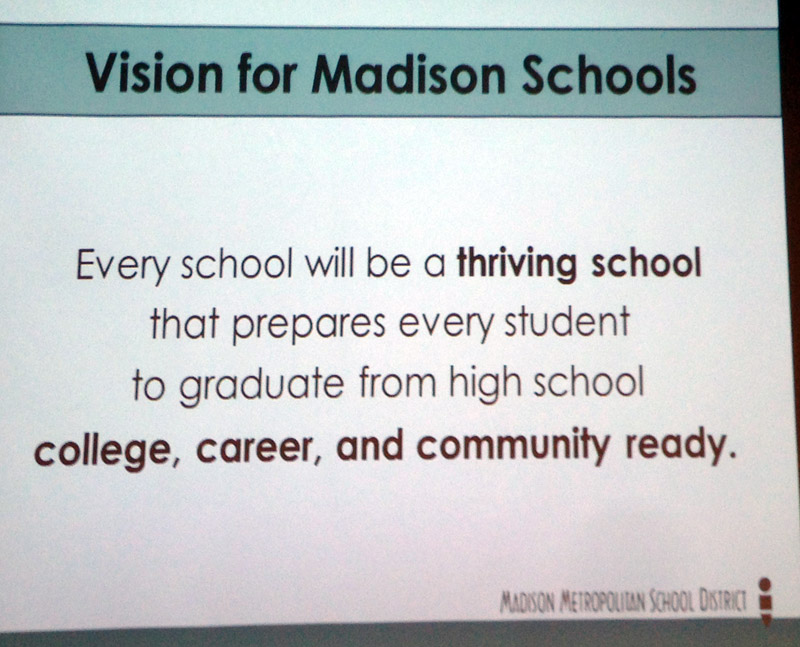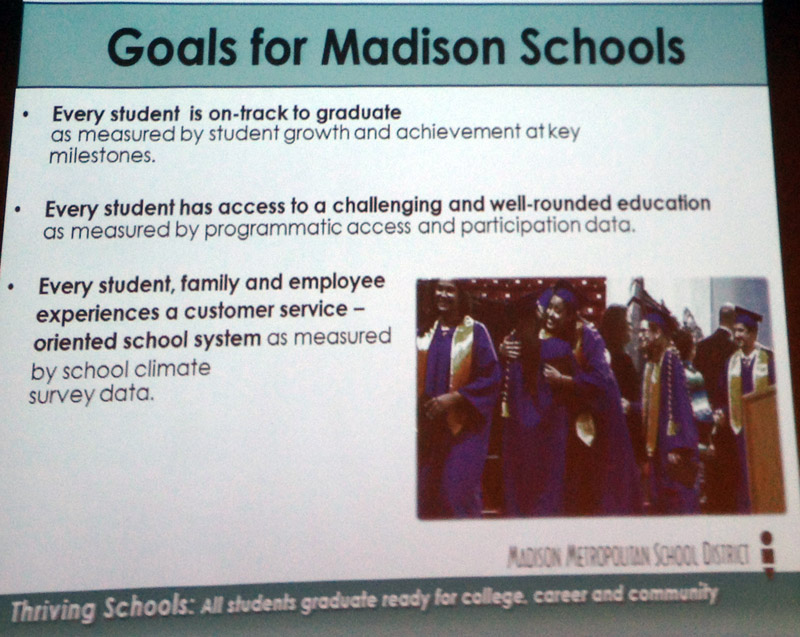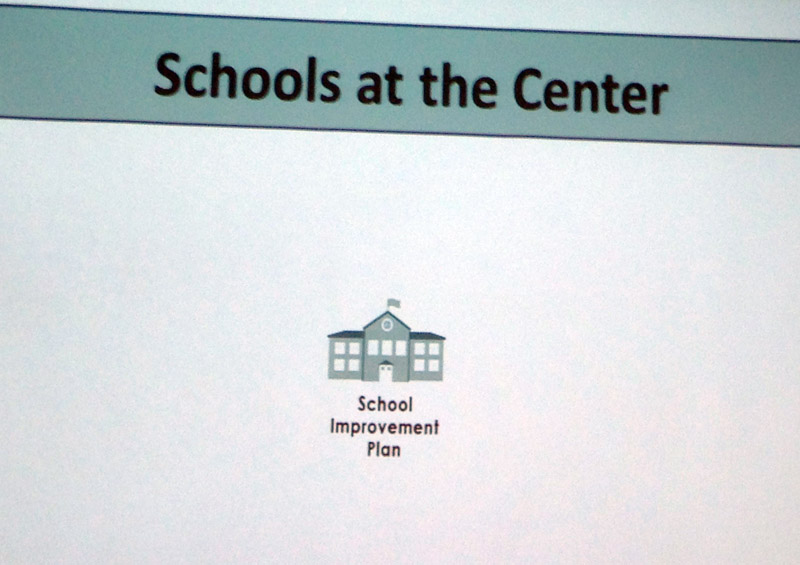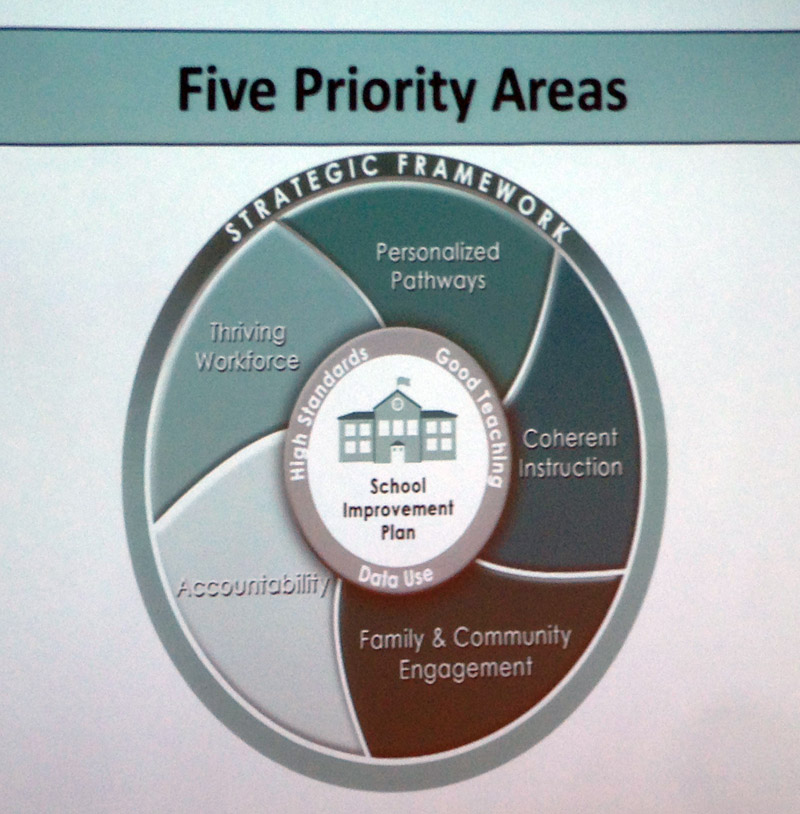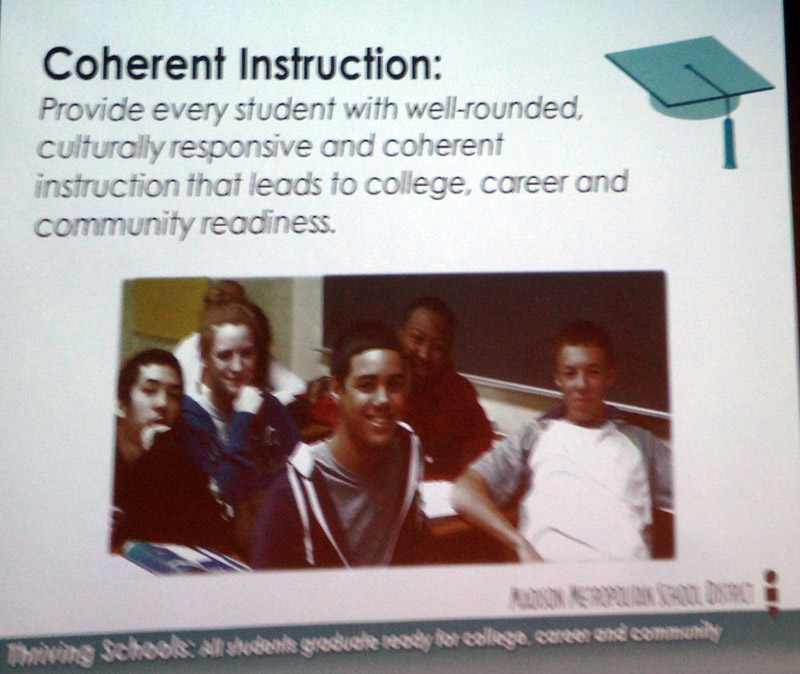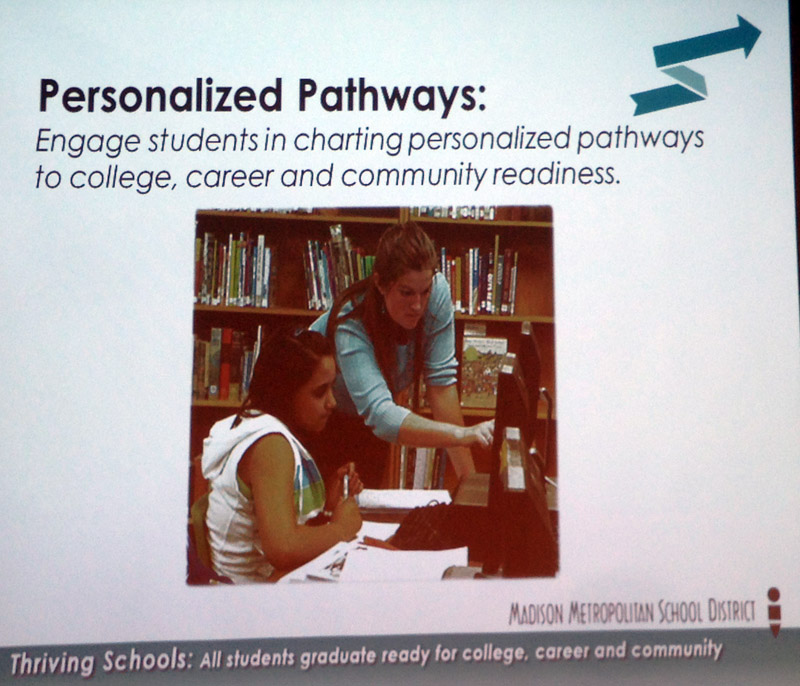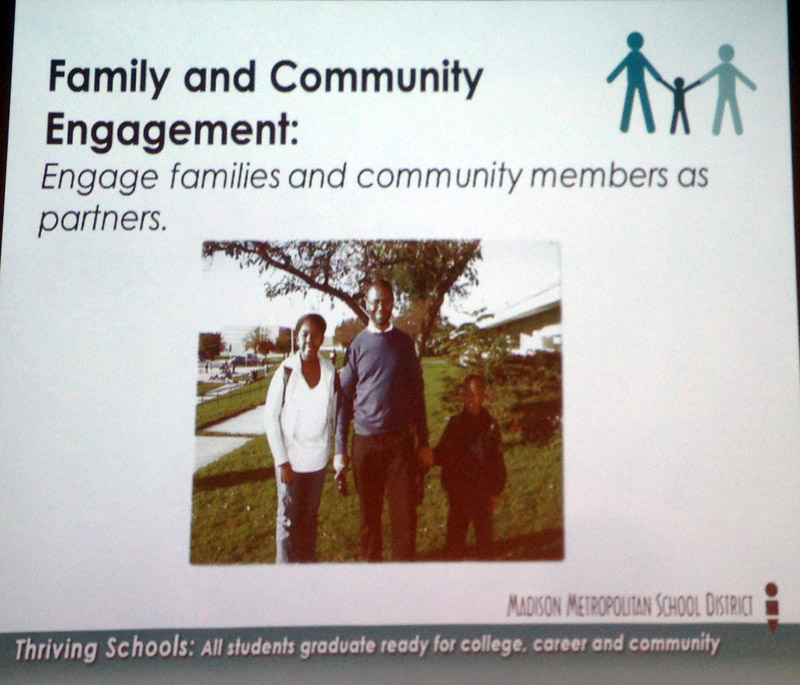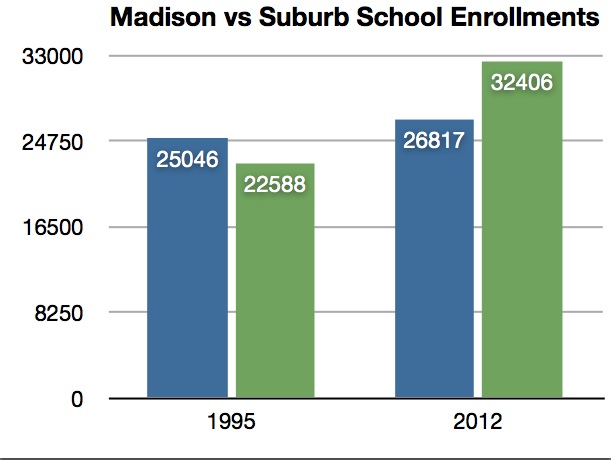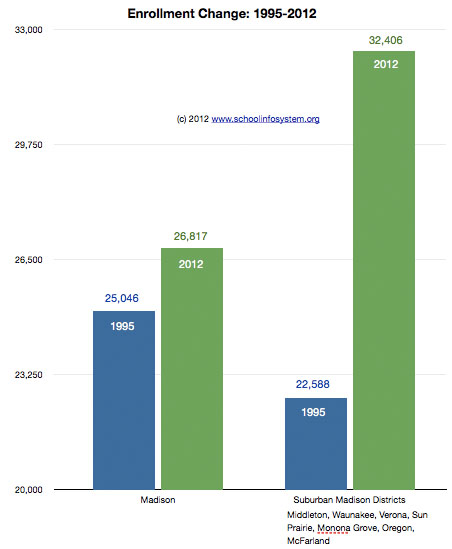December 10, 2011
Dear Friends & Colleagues.
For the last 16 months, we have been on an arduous journey to develop a public school that would effectively address the educational needs of children who have under-performed or failed to succeed in Madison’s public schools for at least the last 40 years. If you have followed the news stories, it’s not hard to see how many mountains have been erected in our way during the process.
Some days, it has felt like we’re desperately looking at our children standing dangerously close to the edge of a cliff, some already fallen over while others dangling by their thumbs waiting to be rescued; but before we can get close enough to save them, we have to walk across one million razor blades and through thousands of rose bushes with our bare feet. As we make our way to them and get closer, the razor blades get sharper and the rose bushes grow more dense.
Fortunately, our Board members and team at the Urban League and Madison Preparatory Academy, and the scores of supporters who’ve been plowing through the fields with us for the last year believe that our children’s education, their emotional, social and personal development, and their futures are far more important than any pain we might endure.
Our proposal for Madison Prep has certainly touched a nerve in Madison. But why? When we launched our efforts on the steps of West High School on August 29, 2010, we thought Madison and its school officials would heartily embrace Madison Prep.We thought they would see the school as:
(1) a promising solution to the racial achievement gap that has persisted in our city for at least 40 years;
(2) a learning laboratory for teachers and administrators who admittedly need new strategies for addressing the growing rate of underachievement, poverty and parental disengagement in our schools, and
(3) a clear sign to communities of color and the broader Greater Madison community that it was prepared to do whatever it takes to help move children forward – children for whom failure has become too commonplace and tolerated in our capital city.
Initially, the majority of Board of Education members told us they liked the idea and at the time, had no problems with us establishing Madison Prep as a non-instrumentality – and therefore, non-union, public school. At the same time, all of them asked us for help and advice on how to eliminate the achievement gap, more effectively engage parents and stimulate parent involvement, and better serve children and families of color.
Then, over the next several months as the political climate and collective bargaining in the state changed and opponents to charter schools and Madison Prep ramped up their misinformation and personal attack campaign, the focus on Madison Prep got mired in these issues.
The concern of whether or not a single-gender school would be legal under state and federal law was raised. We answered that both with a legal briefing and by modifying our proposal to establish a common girls school now rather than two years from now.
The concern of budget was raised and how much the school would cost the school district. We answered that through a $2.5 million private gift to lower the per pupil request to the district and by modifying our budget proposal to ensure Madison Prep would be as close to cost-neutral as possible. The District Administration first said they would support the school if it didn’t cost the District more than $5 million above what it initially said it could spend; Madison Prep will only cost them $2.7 million.
Board of Education members also asked in March 2011 if we would consider establishing Madison Prep as an instrumentality of MMSD, where all of the staff would be employed by the district and be members of the teacher’s union. We decided to work towards doing this, so long as Madison Prep could retain autonomy of governance, management and budget. Significant progress was made until the last day of negotiations when MMSD’s administration informed us that they would present a counter-budget to ours in their analysis of our proposal that factored in personnel costs for an existing school versus establishing a modest budget more common to new charter schools.
We expressed our disagreement with the administration and requested that they stick with our budget for teacher salaries, which was set using MMSD’s teacher salary scale for a teacher with 7 years experience and a masters degree and bench-marked against several successful charter schools. Nevertheless, MMSD argued that they were going to use the average years of experience of teachers in the district, which is 14 years with a master’s degree. This drove up the costs significantly, taking teacher salaries from $47,000 to $80,000 per year and benefits from $13,500 to $25,000 per year per teacher. The administration’s budget plan therefore made starting Madison Prep as an instrumentality impossible.
To resolve the issue, the Urban League and Board of Madison Prep met in November to consider the options. In doing so, we consulted with every member of MMSD’s Board of Education. We also talked with parents, stakeholders and other community members as well. It was then decided that we would pursue Madison Prep as a non-instrumentality of the school district because we simply believe that our children cannot and should not have to wait.
Now, Board of Education members are saying that Madison Prep should be implemented in “a more familiar, Madison Way”, as a “private school”, and that we should not have autonomy even though state laws and MMSD’s own charter school policy expressly allow for non-instrumentality schools to exist. There are presently more than 20 such schools in Wisconsin.
What Next?
As the mountains keep growing, the goal posts keep moving, and the razor blades and rose bushes are replenished with each step we take, we are forced to ask the question: Why has this effort, which has been more inclusive, transparent and well-planned, been made so complicated? Why have the barriers been erected when our proposal is specifically focused on what Madison needs, a school designed to eliminate the achievement gap, increase parent engagement and prepare young people for college who might not otherwise get there? Why does liberal Madison, which prides itself on racial tolerance and opposition to bigotry, have such a difficult time empowering and including people of color, particularly African Americans?
As the member of a Black family that has been in Madison since 1908, I wonder aloud why there are fewer black-owned businesses in Madison today than there were 25 years ago? There are only two known black-owned businesses with 10 or more employees in Dane County. Two!
Why can I walk into 90 percent of businesses in Madison in 2011 and struggle to find Black professionals, managers and executives or look at the boards of local companies and not see anyone who looks like me?
How should we respond when Board of Education members tell us they can’t vote for Madison Prep while knowing that they have no other solutions in place to address the issues our children face? How can they say they have the answers and develop plans for our children without consulting and including us in the process? How can they have 51 black applicants for teaching positions and hire only one, and then claim that they can’t find any black people to apply for jobs? How can they say, “We need more conversations” about the education of our children when we’ve been talking for four decades?
I have to ask the question, as uncomfortable as it may be for some to hear, “Would we have to work this hard and endure so much resistance if just 48% of white children in Madison’s public schools were graduating, only 1% of white high school seniors were academically ready for college, and nearly 50% of white males between the ages of 25-29 were incarcerated, on probation or under some form of court supervision?
Is this 2011 or 1960? Should the black community, which has been in Madison for more than 100 years, not expect more?
How will the Board of Education’s vote on December 19th help our children move forward? How will their decision impact systemic reform and seed strategies that show promise in improving on the following?
Half of Black and Latino children are not completing high school. Just 59% of Black and 61% of Latino students graduated on-time in 2008-09. One year later, in 2009-10, the graduation rate declined to 48% of Black and 56% of Latino students compared to 89% of white students. We are going backwards, not forwards. (Source: MMSD 2010, 2011)
Black and Latino children are not ready for college. According to makers of the ACT college entrance exam, just 20% of Madison’s 378 Black seniors and 37% of 191 Latino seniors in MMSD in 2009-10 completed the ACT. Only 7% of Black and 18% of Latino seniors completing test showed they had the knowledge and skills necessary to be “ready for college”. Among all MMSD seniors (those completing and not completing the test), just 1% of Black and 7% of Latino seniors were college ready
Too few Black and Latino graduates are planning to go to college. Of the 159 Latino and 288 Black students that actually graduated and received their diplomas in 2009-10, just 28% of Black and 21% of Latino students planned to attend a four-year college compared to 53% of White students. While another 25% of Black and 33% of graduates planned to attend a two-year college or vocation program (compared to 17% of White students), almost half of all of all Black and Latino graduates had no plans for continuing their education beyond high school compared to 27% of White students. (Source: DPI 2011)
Half of Black males in their formative adult years are a part of the criminal justice system. Dane County has the highest incarceration rate among young Black men in the United States: 47% between the ages of 25-29 are incarcerated, on probation or under some form of court supervision. The incarceration phenomena starts early. In 2009-10, Black youth comprised 62% of all young people held in Wisconsin’s correctional system. Of the 437 total inmates held, 89% were between the ages of 15-17. In Dane County, in which Madison is situated, 49% of 549 young people held in detention by the County in 2010 were Black males, 26% were white males, 12% were black females, 6% were white females and 6% were Latino males and the average age of young people detained was 15. Additionally, Black youth comprised 54% of all 888 young people referred to the Juvenile Court System. White students comprised 31% of all referrals and Latino comprised 6%.
More importantly, will the Board of Education demonstrate the type of courage it took our elders and ancestors to challenge and change laws and contracts that enabled Jim Crow, prohibited civil rights, fair employment and Women’s right to vote, and made it hard for some groups to escape the permanence of America’s underclass? We know this is not an easy vote, and we appreciate their struggle, but there is a difference between what is right and what is politically convenient.
Will the Board have the courage to look in the faces of Black and Latino families in the audience, who have been waiting for solutions for so long, and tell them with their vote that they must wait that much longer?
We hope our Board of Education members recognize and utilize the tremendous power they have to give our children a hand-up. We hope they hear the collective force and harmony of our pleas, engage with our pain and optimism, and do whatever it takes to ensure that the proposal we have put before them, which comes with exceptional input and widespread support, is approved on December 19, 2011.
Madison Prep is a solution we can learn from and will benefit the hundreds of young men and women who will eventually attend.
If not Madison Prep, then what? If not now, then when?
JOIN US
SCHOOL BOARD VOTE ON MADISON PREP
Monday, December 19, 2011 at 5:00pm
Madison Metropolitan School District
Doyle Administration Building Auditorium
545 West Dayton Street
Madison, WI 53703
Contact: Laura DeRoche Perez, Lderoche@ulgm.org
Phone: 608-729-1230
CLICK HERE TO RSVP: TELL US YOU’LL BE THERE
Write the School Board and Tell Them to “Say ‘Yes’, to Madison Prep!”
Madison Prep 2012!
Onward!
Kaleem Caire
President & CEO
Urban League of Greater Madison
Phone: 608-729-1200
Fax: 608-729-1205
www.ulgm.org
OUR RESPONSE TO MMSD’S NEW CONCERNS
Autonomy: MMSD now says they are concerned that Madison Prep will not be accountable to the public for the education it provides students and the resources it receives. Yet, they don’t specify what they mean by “accountability.” We would like to know how accountability works in MMSD and how this is producing high achievement among the children it serves. Further, we would like to know why Madison Prep is being treated differently than the 30 early childhood centers that are participating in the district’s 4 year old kindergarten program. They all operate similar to non-instrumentality schools, have their own governing boards, operate via a renewable contract, can hire their own teachers “at their discretion” and make their own policy decisions, and have little to no oversight by the MMSD Board of Education. All 30 do not employ union teachers. Accountability in the case of 4K sites is governed by “the contract.” MMSD Board members should be aware that, as with their approval of Badger Rock Middle School, the contract is supposed to be developed “after” the concept is approved on December 19. In essence, this conversation is occurring to soon, if we keep with current district practices.
Collective Bargaining Agreement (CBA): MMSD and Madison Teachers, Incorporated have rejected our attorney’s reading of ACT 65, which could provide a path to approval of Madison Prep without violating the CBA. Also, MTI and MMSD could approve Madison Prep per state law and decide not to pursue litigation, if they so desired. There are still avenues to pursue here and we hope MMSD’s Board of Education will consider all of them before making their final decision.
